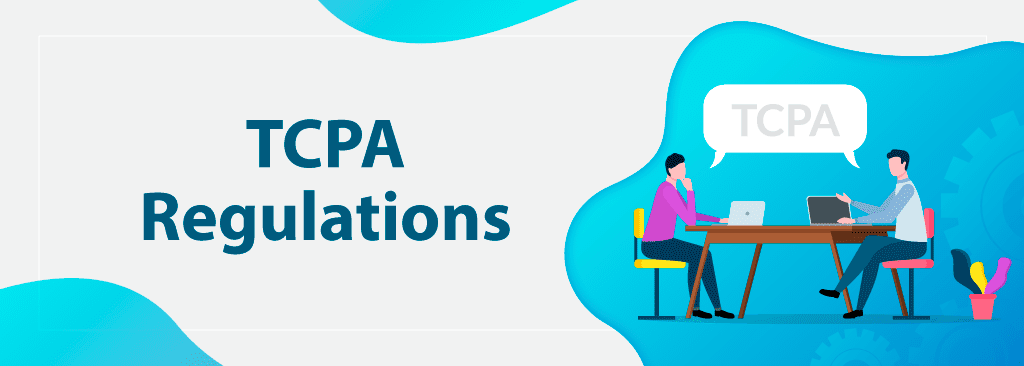Understanding TCPA Regulations
TCPA stands for the Telephone Consumer Protection Act. This act restricts and controls telemarketing calls, the use of automatic dialing systems and prerecorded messages. These restrictions also come with hefty fines that can drive call centers out of business. Because of these potentially devastating penalties, TCPA is a significant concern for all call centers nationwide. TCPA regulations aren’t going anywhere anytime soon, so it is best to learn about it, so you know how to avoid compliance violations.
What are the Regulations?
TCPA has various regulations covering a broad spectrum of use cases. In general, TCPA’s rules fit within these seven categories:
- Dialer Usage
- Caller ID
- Calling Times
- DNC List Suppression
- Required Disclosures
- Monitoring and Enforcement
- Record Keeping
Dialer Usage is a hot topic within the TCPA. These regulations forbid using autodialers, recordings or prerecorded messages when calling consumers with mobile phones without prior written consent.
When making outbound calls, the phone numbers in use need to be registered so that a valid name and phone number appear on the caller ID.
Call centers are also only allowed to make calls during certain times to prevent contacting consumers at all hours of the night. The permitted calling hours are between 8 AM to 9 PM within the consumer’s time zone.
In addition to restricting call times, the TCPA prohibits call centers from contacting individuals added to the national do not call registry. Call centers can cross-reference their call lists with this registry to make sure they remain in compliance.
While many phone numbers may not be on the DNC registry, contacting them is not always as simple as adding them to a call list for your auto dialer to call. Before your auto dialer can do its job, you must first obtain express written consent to contact using an autodialer, and this agreement must contain a few disclosures. It needs to include that automated technology will be used, consumers are not required to provide consent as a condition of purchase, the number that the person consents to receive calls at, the name of the seller and the purpose of consent to be contacted.
When call centers contact consumers, it is the contact center’s responsibility to monitor and enforce compliance internally and for third parties. The call center is responsible if a compliance violation occurs knowingly or unknowingly.
Part of the call center’s responsibilities includes record keeping. Businesses need to keep a record demonstrating compliance with TCPA guidelines to prove compliance in the case of allegations raised.
What are the Penalties?
The penalties for violating the TCPA guidelines are steep, and violations are fined per willful violation. This penalty model can result in millions of dollars in fines for call centers. If you call one individual from the Do Not Call Registry, you can be fined up to $500. For any other additional violation of the TCPA regulations, you can be fined an additional $500. These fines can be increased up to $1,500 per call if the affected consumer can prove that the compliance violations were made knowingly or willingly. These calls add up quickly and can ruin your business.
What can TCN do?
TCN provides advanced call center software, complete with a comprehensive compliance suite to ensure your business stays safe through total compliance. The compliance suite is equipped with solutions such as manually approved calling, Manual Dialers and their industry-first Natural Language Compliance, among others. With these solutions, call centers can add additional layers of security to their call center’s compliance while simplifying the process and improving efficiency.
Natural Language Compliance allows you to build and implement rules for making calls quickly and easily, while manual dialers and manually approved calling lets agents perform a final compliance check before placing a call. There are many tools that can help call centers with compliance. Request a demo to learn more about TCN’s comprehensive compliance suite and additional regulations TCN’s software helps navigate.
